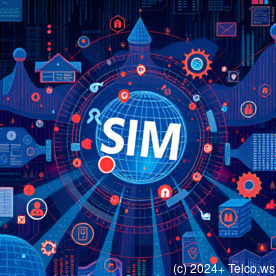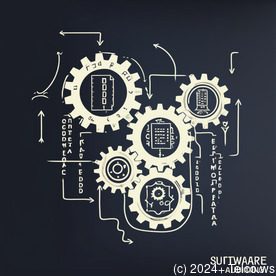
The Comprehensive Guide to ColdFusion Markup Language (CFML)




Introduction to ColdFusion Markup Language (CFML)
ColdFusion Markup Language (CFML) is a powerful, versatile server-side scripting language designed primarily for building dynamic web applications. Created by Allaire in 1995, CFML has undergone remarkable growth and transformation, especially after its acquisition by Adobe Systems. Today, it stands as one of the preferred solutions among developers for crafting web applications that are both effective and efficient.
One of the most notable features of CFML is its syntax, which closely resembles HTML. This similarity makes it highly accessible for web developers, allowing easy integration while reducing the learning curve for those familiar with standard markup languages. CFML scripts can run on various server environments, such as Adobe ColdFusion server, Lucee, and Open BlueDragon, engaging with databases, managing sessions, and integrating with Java libraries, making it a truly multi-faceted language.
The language leverages built-in functions that handle a myriad of tasks ranging from form validation to file manipulation and database interactions, enabling developers to focus more on business logic rather than getting lost in code complexities. CFML's architecture promotes rapid application development, resonating well with agile methodologies, and fostering a culture of innovation by allowing teams to iterate quickly and adjust based on real-time user feedback.
Moreover, CFML has a vibrant community that shares libraries, frameworks, and best practices, providing extensive resources to developers. Understanding CFML is becoming increasingly crucial as organizations pivot towards web-based solutions for customer engagement, service delivery, and operational efficiency. The eclectic range of CFML applications, from e-commerce platforms to CRM systems and content management solutions, is a testament to its adaptability and power in addressing various business needs.




Economic Implications of CFML
The economic implications of adopting CFML for web application development are profound and multifaceted. Firstly, companies that leverage CFML can significantly reduce development costs, which is critical in today's competitive market. The language's rich feature set allows developers to quickly implement applications, which minimizes labor costs and time investment.
For instance, projects that would typically take months in traditional programming might be completed in weeks with CFML. This speed to market can lead to earlier revenue generation and provides businesses with a competitive edge. Furthermore, CFML's efficiency is often complemented by its ability to integrate with existing systems, providing a seamless transition for businesses that are modernizing their technology stacks without losing valuable functionality.
Quantifying the savings becomes vital; for example, a business transitioning to CFML might observe a turnaround reduction by 50% in project completion time. This can translate into substantial labor cost savings of thousands of dollars per project, considering average developer salaries. Enhanced productivity allows for more projects to be undertaken, potentially increasing revenue streams and benefitting overall business growth.
Moreover, the economic landscape of software development emphasizes the necessity of an adaptive business model. Companies investing in CFML may benefit from the ability to pivot their offerings or quickly develop new products based on market feedback without extensive expenditure. As innovation in services becomes imperative to stay relevant, CFML's speed and flexibility present a compelling argument for its adoption.
By utilizing CFML, businesses bolster their operational efficiencies and enhance their value propositions, ensuring they arent just meeting current market demands but are also better positioned to capture future opportunities.




Political and Legal Framework of ColdFusion
Government Policies and Legal Considerations
The political landscape in which businesses operate has significant implications for web development, especially regarding technologies like CFML. The global push towards stricter data governance, prompted by rising concerns around user privacy, security, and data integrity, has led to the establishment of regulations such as the General Data Protection Regulation (GDPR) in the EU and the California Consumer Privacy Act (CCPA) in the U.S.
These legal frameworks mandate that businesses respect consumer privacy, implement adequate data protection measures, and enhance transparency around data usage. Consequently, implementing CFML requires developers to integrate compliance considerations directly into their coding practices. Non-compliance with these regulations can lead to significant fines and reputational damage, making it imperative for organizations to adopt best practices from the outset.
Compliance and Regulatory Requirements
CFML offers several built-in security features to assist developers in addressing compliance challenges effectively. For example, session management, data encryption, and access controls can be easily integrated into CFML applications, allowing organizations to safeguard user data and ensure regulatory compliance without excessive overhead.
Moreover, the inclusion of third-party libraries tailored for security testing enhances the ability to mitigate vulnerabilities proactively. Developers are often encouraged to adopt robust coding standards and perform regular audits and testing, ensuring that their applications evolve in line with legislative changes.
By being proactive about compliance and embedding security practices within their CFML applications, businesses position themselves as trusted entities in the marketplace, thereby enhancing their brand value and customer loyalty.




Social Considerations in Using CFML
In examining the social implications of using CFML, we can appreciate how technology shapes user interactions and societal structures. CFMLs strengths in creating accessible applications directly contribute to the modern drive towards inclusivity in digital services. Efforts to democratize access to information and services are paramount, especially as more people rely on the internet for essential services, education, and commerce.
Moreover, educational institutions have begun leveraging CFML to develop custom learning management systems (LMS), providing a platform where educators can deliver content dynamically and assess student engagement. These platforms can give students tailored feedback, incorporate interactive tools, and create an immersive learning experience that encourages participation and reduces barriers.
The cultural significance of this transformation cannot be overlooked. By engaging with users in a more personalized manner, applications built on CFML allow for two-way communication. User feedback loops, implemented directly within applications, can significantly shape product development, enabling businesses to align their offerings with user needs and preferences effectively.
Another notable aspect is the community-driven development surrounding CFML. The engaged community regularly shares innovations, best practices, and solutions that address emerging social challenges. This collaborative spirit combines developers, users, and enthusiasts alike, building a supportive network predicated upon shared knowledge and experience, which enhances confidence in adopting the technology.




The Technological Framework of CFML
Integrating Modern Tech in CFML Development
The technological underpinnings of CFML are robust, allowing for seamless integration with various modern web technologies. CFML supports RESTful APIs, which enable applications to communicate with external services and third-party platforms. This capability is crucial for businesses that wish to broaden their service offerings by integrating functionalities such as payment processing, social media interaction, or data analytics tools.
Another significant feature of CFML is its compatibility with cloud computing platforms. The rising trend of cloud service adoption has transformed how applications are built, deployed, and maintained. By utilizing cloud services, businesses can achieve scalable, reliable, and cost-effective application hosting, capitalizing on CFMLs ability to connect to cloud resources efficiently.
CFML also lends itself well to microservices architecture, where applications are built as a suite of independently deployable, small services. This modular approach enhances application maintainability and resilience, as different components can be updated or replaced without affecting the entire system. Developers are encouraged to adopt such architectures to maximize the benefits of CFML's capabilities.
Future of CFML in Technological Advancements
As the technological landscape evolves, CFML continues to innovate. Adobes commitment to enhancing CFML through regular updates ensures that developers have access to the latest features, including improved performance, modern language features, and tools to facilitate AI and machine learning integration. These enhancements empower developers to adopt advanced methodologies such as predictive analytics, enriching their applications and creating more intelligent user experiences.
Looking ahead, the integration of CFML with emerging technologies like the Internet of Things (IoT) represents an exciting frontier. As businesses collect and analyze vast amounts of data from connected devices, CFML can play a critical role in processing and interpreting this data, driving insights that inform strategic decision-making.




Conclusion: Investing in CFML for Future-Proof Applications
In conclusion, ColdFusion Markup Language (CFML) is a robust and highly effective tool for developing dynamic web applications that meet the complex demands of modern users and businesses alike. Through our exploration of CFML from multiple perspectivesincluding economic, political, social, and technologicalwe can appreciate its ability to stand out as a solution that promotes innovation, compliance, and user engagement.
The economic benefits of CFML, such as cost efficiencies and rapid deployment capabilities, position businesses to effectively compete in a largely digital marketplace. Political sensitivity to data governance and compliance is seamlessly woven into CFMLs framework, ensuring that businesses can navigate these challenges effectively. Socially, CFML fosters inclusive application development that engages diverse audiences while promoting community collaboration and support.
Investing in CFML is not merely about adopting a technology; it involves embracing a forward-thinking strategy that can lead to sustained agility, efficacy in service delivery, and meaningful user interactions. If youre eager to learn how CFML can enhance your projects and foster growth within your organization, feel free to reach out to us at www.telco.ws . Should you be ready to capitalize on our CFML expertise, our comprehensive CFML development services are available for an investment of $750. We invite you to proceed to our Checkout Gateway to finalize your purchase. After your transaction, please send us your payment receipt along with detailed project information so we can initiate our CFML services promptly. Thank you for considering our expertise in enhancing your digital journey!
Ready to Revolutionize Your Web Development?
With our specialized CFML development services available for the competitive price of $750, you can significantly enhance your digital presence and engagement. Click the link above to secure your service today and take a pivotal step toward exemplary web application development!
